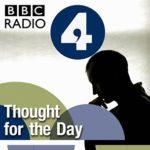 Met Police Commissioner Cressida Dicks’ weekend statement that police had prevented as many as five near imminent terrorist attacks over the last few months-, reminds us that we still have much to do to understand and combat the roots of such terrorism.
Met Police Commissioner Cressida Dicks’ weekend statement that police had prevented as many as five near imminent terrorist attacks over the last few months-, reminds us that we still have much to do to understand and combat the roots of such terrorism.
The seeming paradox behind increasing terrorist outrages and much of the violence in the world today, is how can religious teachings designed to help us be better human beings, be manipulated to lead to the deliberate killing of innocents?
Sikh teachings remind us that what generally passes for religion, is, in reality, a complex mix of superstition, rituals, culture, group history and uplifting ethical teachings. No religion, including my own is immune from followers going against its ethical teachings. Ethical teachings are easy to state, but difficult to live by, and in practice, greater emphasis is often placed on culture and rituals, and sometimes, a perversely unifying belief, that God favours our faith over that of others.
Guru Nanak, looking at conflict between religions in the India of his day, reminded us: ‘the one God of us all is not the least bit interested in our different religious labels but in what we do for others.’ It’s a perversion to believe that God condones killing and murder in His name, and to horrendous crimes and savagery not only between faiths but within the same faith. Today, despite many years of earnest effort for inter faith understanding, there is virtually no dialogue between faiths to explore and understand their different religions. Religious leaders come together, deplore the violence in the world, share tea and samosas, and then, often go back to their congregations to preach exclusivity.
There is an urgent need to look at the environment in which the cancer of terrorism thrives. We need legitimate discussion of questionable attitudes and practices, beginning with those that discriminate against women, gay people and others. Prime Minister Theresa May was right when she recently spoke of the need for difficult conversations about religion. A bold, but courteous, questioning of seemingly divisive practices will help make religion, what it was always intended to be, an active player in working for the common good of all.

